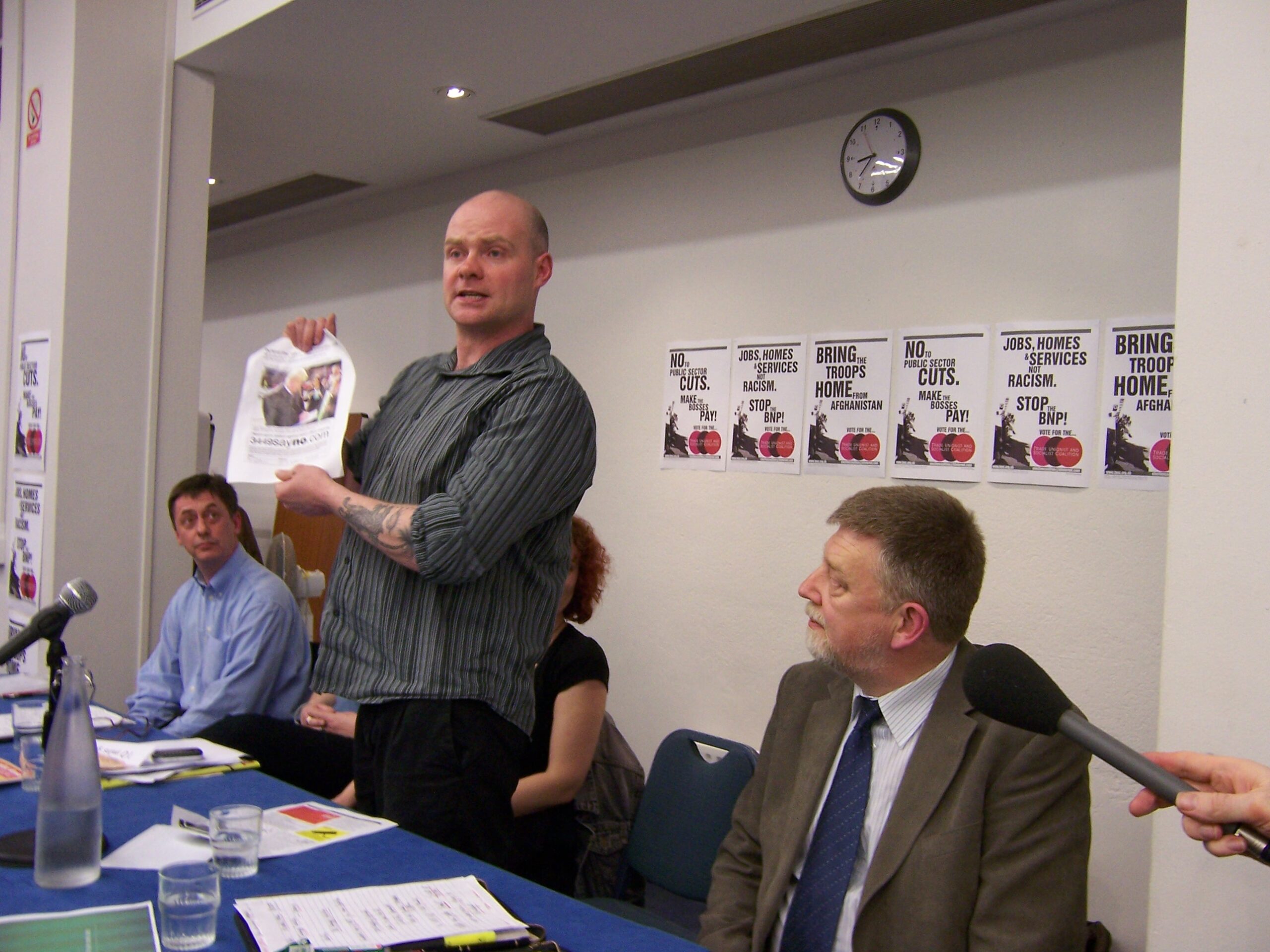“THE Trade Unionist and Socialist Coalition (TUSC) is not the answer for everything that we need to do as a movement to resist the austerity measures that will come from this Tory-Liberal government”, said the RMT transport workers’ union general secretary, Bob Crow, to a post-election meeting of TUSC candidates last week. “But in my opinion, speaking in a personal capacity, TUSC should carry on, it should stand in future elections, and it should be at the forefront of anti-cuts campaigning as well”.
“The votes for TUSC candidates were small on this occasion”, he went on, “and a report will be presented to the RMT’s annual general meeting listing the votes of all RMT-endorsed candidates. But I’m looking forward to having the argument with those who say the unions shouldn’t be involved with election campaigns that get small votes. When do you start to offer an alternative?
“And what’s the alternative if you don’t stand, other than to back a New Labour party that has held down the working class in the interests of capital for 13 years?”
The meeting heard reports of how well the TUSC campaign had been received whenever candidates had a chance to address a public audience. Particularly in this election, however, even sympathetic workers were not confident that a vote for TUSC could make a difference and so voted for Labour as ‘the lesser evil’ against the threat of the Tories. But, the meeting agreed, that mood can change as struggles develop against the new government. TUSC, precisely because it is a coalition involving leaders of the most militant trade unions in Britain today, could be a catalyst in developing the independent working class political representation that is needed.
Proposals were presented to the meeting from the TUSC steering committee on how to take the coalition forward into 2011.
While TUSC will consider contesting parliamentary by-elections as they arise, it will also actively seek to encourage and coordinate challenges in the elections scheduled for 2011.
A conference will be organised in the autumn for local groups planning to stand candidates for the Welsh assembly and English local councils, where policy statements relating to these elections will be discussed, while the Scottish TUSC steering committee will prepare for the Scottish parliament elections.
A campaign will be conducted to take TUSC into the trade unions in particular, to get more leading trade unionists to participate on the steering committee. But the steering committee proposals also recognised that the structure of the coalition is “only an interim arrangement” which will need to be reviewed as TUSC develops in the future.
“TUSC was established more for the events to come than the election just past”, concluded Dave Nellist, the Coventry Socialist Party councillor and former Labour MP. “The first priority in the immediate future is to back all efforts to force the TUC to organise an autumn demonstration against the cuts, or to back an alliance of those unions prepared to fight to do so if the TUC won’t.
“But all participants in TUSC have a responsibility to keep up its profile as struggles against the new government unfold”.









